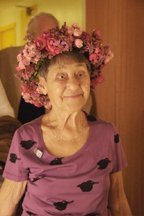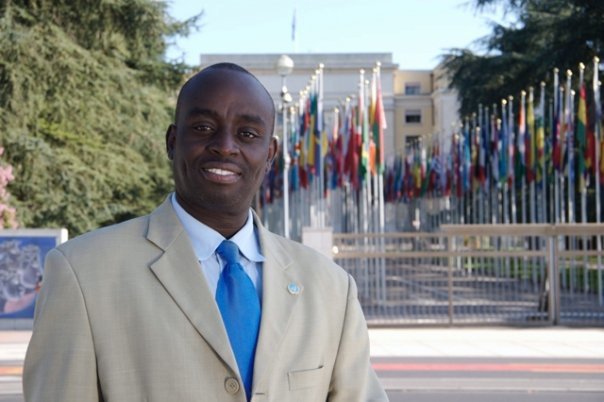
Earlier this month, I watched A Place at The Table, a recent documentary about the food crisis in America. As a writer and an eater and an avid home cook, this is a topic I care very much about—I read everything I can get my hands on related to the topic of food.
https://www.youtube.com/watch?v=TnuawGkTRzo
I'm familiar with America's food deserts, areas where there is little to no fresh produce available. I've read about the frustrating rise in the cost of produce and the simultaneous drop in the cost of processed food, both related directly to food subsidies. I've heard about how food stamps make it all but impossible to choose nutritious options, and how doctors are treating more and more illnesses related to malnutrition. I knew that millions of American kids consume too many calories or not enough nutrients, and I knew that 50 million Americans and one in four American children don't know where their next meal will come from. I've been reading about these numbers and figures and policies for years. I knew this stuff.
What I didn't know: I didn't know that this movie would move me. I didn't know that weeks later I'd still be thinking about it, picturing the faces of the children, very much like my own. I didn't anticipate that as I sliced fruit for my boys one morning, my mind would snap to the stories and faces and voices in the film, and that the fruit in my hand would seem to be accusing me, almost—Why do your children have all the fruit they want while other children in our country starve? I didn't anticipate my anger, and I didn't expect my tears.
My friend Eve told me many years ago that our tears are guides, if we let them be. Our tears can tell us things about ourselves—about our dreams and passions and callings, about our wounds and fears and bruises. Tears tell us the things that we're not quite ready to say out loud, and I've learned along the way to pay close attention to them.
My tears led me to become a writer—a challenging and gratifying way of living, one that shapes and instructs me along the way. My tears led me to run the Chicago Marathon with Team World Vision, even though I'd never run more than three miles in my life, and that journey positively rearranged me, inside and out. My life experience tells me that we must pay attention to our tears.
My dad, who is also my pastor, uses the term "holy discontent," when something riles you up so much that you know you have to do something. When you can't get something out of your mind, when you find yourself working on it all the time like a tongue on a loose tooth.
Whatever the term, I think this is mine. Hunger in America—and globally, certainly—is an urgent issue. And lack of nutrients is only one part of hunger. One of my favorite Chicago chefs was interviewed recently in the Tribune on the topic of violence in our city. Chicago is experiencing a heartbreaking spike in violence these days, and in a conversation about that violence, Rick Bayless turned our attention, as he always does, back to the table.
Hunger is physiological, of course, but it's more than that. When you don't have food, you don't have any reason to gather around the table. In his words, "Meals don't just feed us, they are cultural rituals that civilize us."
This connects with me in such a deep way. The work to be done in this country is not just delivering adequate nutrients to people who need them, although that has to be our first order of business. We have to assure that people have enough food, so that they have something to gather around, so that they can feel the love and connectedness and nourishment—the civility, to use Bayless' word—that we experience when we share meals around the table.
The table is where we connect, where we learn and listen, where we become familiar with the practices of sharing and giving, essential practices in all of life. And if there is no food, there is no reason to gather at the table. We're talking, then, about multiple kinds of hunger, and my tears are telling me loud and clear that part of my calling is to address hunger in its every form.
Shauna Niequist is the author of Bread and Wine, Cold Tangerines, and Bittersweet. She lives outside Chicago with her husband, Aaron, and their sons Henry and Mac, and blogs at www.shaunaniequist.com.
When Hilde Back (at right), a Holocaust survivor who fled to Sweden, where she became a preschool teacher, decided to sponsor a child in Africa, she had no idea how far her money would go. She knew it would probably help one child – in this case, Chris Mburu of Kenya – to get better nutrition and education. Turns out that it went a LOT further than that.
A Small Act, premiering at 8 p.m. Eastern on July 12 on HBO, tells the story from Mburu’s perspective – how Back’s sponsorship helped him to not only get a good education in Kenya, but to go on to Harvard Law School and later become a human rights advocate for the United Nations, dedicating his life to fighting for “the least of these.”

I knew I had passed the ambiguous "Is she chubby or is she pregnant?" phase when people started posing direct questions about the baby like "When are you due?" or "How far along are you?" Later in the conversation, they'd ask, "Do you have the nursery set up?" or "What colors are you doing your nursery?"
The first few times I was caught off guard. We didn't plan on having a nursery. Over the next few months, I had to develop a standard two-line response, a justification for a decision I didn't expect to be so counter-cultural.
I am one of the first of my friends to have kids, so I didn't realize what a Big Deal nurseries were. Turns out, they are a Big Deal. Pregnancy magazines offer tips for designing the perfect nursery, not to mention the "inspiring" design ideas on the web and Pinterest.
Our decision to forgo a nursery started out as a practical, maybe even slightly selfish one. We live in a two-bedroom condo, with a bedroom and an office/craft room/guest room. Not ready to give up the multipurpose second bedroom, we set up a changing table and Pack 'N Play in our room and felt ready to go.
The more I thought about it, I realized that baby nurseries—like so many other seemingly insignificant aspects of life—symbolize certain cultural values we express and pass along to our children. Then I read Our Babies, Ourselves, by Meredith Small, an anthropologist who studies ethnopediatrics, child-rearing across cultures.
Before my baby was out of the womb I already felt tired of debates over the Right Way to parent. As she looks at cultures around the world, Small asserts that there is no Right Way. Instead, "Every act by parents, every goal that molds that act, has a foundation in what is appropriate for that particular culture. In this sense, no parenting style is 'right' and no style is 'wrong.' It is appropriate or inappropriate only according to the culture."
In the United States, we value individualism, so we place babies in their own cribs, in their own rooms. But in Italian culture, children sleeping on their own is considered "unkind," and Mayan parents were shocked when told of the American practice of putting babies to bed in their own room, saying it was "tantamount to child neglect." How we raise our children has practical implications, and I realized how important it is for my husband and me to be intentional about our decisions, whether they align with the prevailing wisdom from our nursery-loving, individualistic culture or not.
I'm not anti-nursery. I see adorable nurseries, and my heart melts a little bit. I don't think it is wrong for parents with the space or the means to create a special bedroom for their new little one. I think that individualism and independence are important American values that have strengthened our country – and I understand that many parents want to start encouraging these from a young age.
The values I hope, with God's grace, will guide our family spur from the broad commands to "love God and love others." These include opening our home and lives to friends and strangers (Rom. 12:13), learning to be content with whatever we have (Phil. 4:12), and being able to be flexible and adaptable, so that we can more easily put the preferences of others before our own (Phil. 2:3-4). My husband and I are constantly learning how to live these out in big ways and small.
It's not always easy. I pined over a fancy jogging stroller until my husband came home with jogging stroller he bought on Craigslist. I was initially disappointed, but he encourages me to be content with what we have, reminding me "It works, it's fine. Some people don't even have strollers."
We decided to not have a nursery. We're hoping that it will allow us to maintain a space for hospitality as we welcome visitors into our guest room, reminds us we are blessed with the space we do have, and teaches us and our baby to be flexible…even if it means sleep might be disrupted by snoring or crying. Maybe this idealism won't last. Maybe in six months or a year it will be clear that we were crazy, but for now, this seems to be a good direction for our family.
Katie Galli Holden lives in the Chicago suburbs with her husband, baby girl, and geriatric rabbit. She is part-time director of the Glen Ellyn Children's Resource Center, a community non-profit working with at-risk youth and their families. Her writing has appeared in Christianity Today and Discipleship Journal. Her musings on living outside the box in suburbia can be found at http://suburbancompost.com.
In an effort to “give back,” Mburu (left) establishes the Hilde Back Education Fund to sponsor some of the brightest and most disadvantaged of Kenya’s next generation. Secondary school can cost less than $10 a week in Kenya, but even that amount is out of reach for many families. In A Small Act, three gifted students compete for a scholarship that may be the only chance they have of continuing their schooling and changing their lives.
Meanwhile, Back is completely unaware of what has happened to the young boy she once sponsored. So Mburu tracks down the now 80-year-old in Sweden, and brings her to Kenya to see all the good that she has done. It’s a wonderful little film that nicely illustrates what our own small acts can accomplish.
Director Jennifer Arnold, who attended the University of Nairobi, says she wanted to tell a story that would “inspire audiences to do their own ‘small acts.’ There are huge stakes for these kids, who are literally fighting for their lives. . . . These kids may one day impact people across the world as Chris Mburu has, and Hilde Back before him.” As Back says, “If you do something good, it can spread in circles, like rings on the water.”
Though there’s little to no spiritual perspective (the organization through which Back sponsored Mburu wasn’t faith-based), it’s quite inspiring. And when one thinks of the difference that can be made through such Christian NGOs as World Vision, Compassion, and Food for the Hungry, it’s easy to see why child sponsorship can literally change the world.
Learn more about the film here, and see the trailer below:








